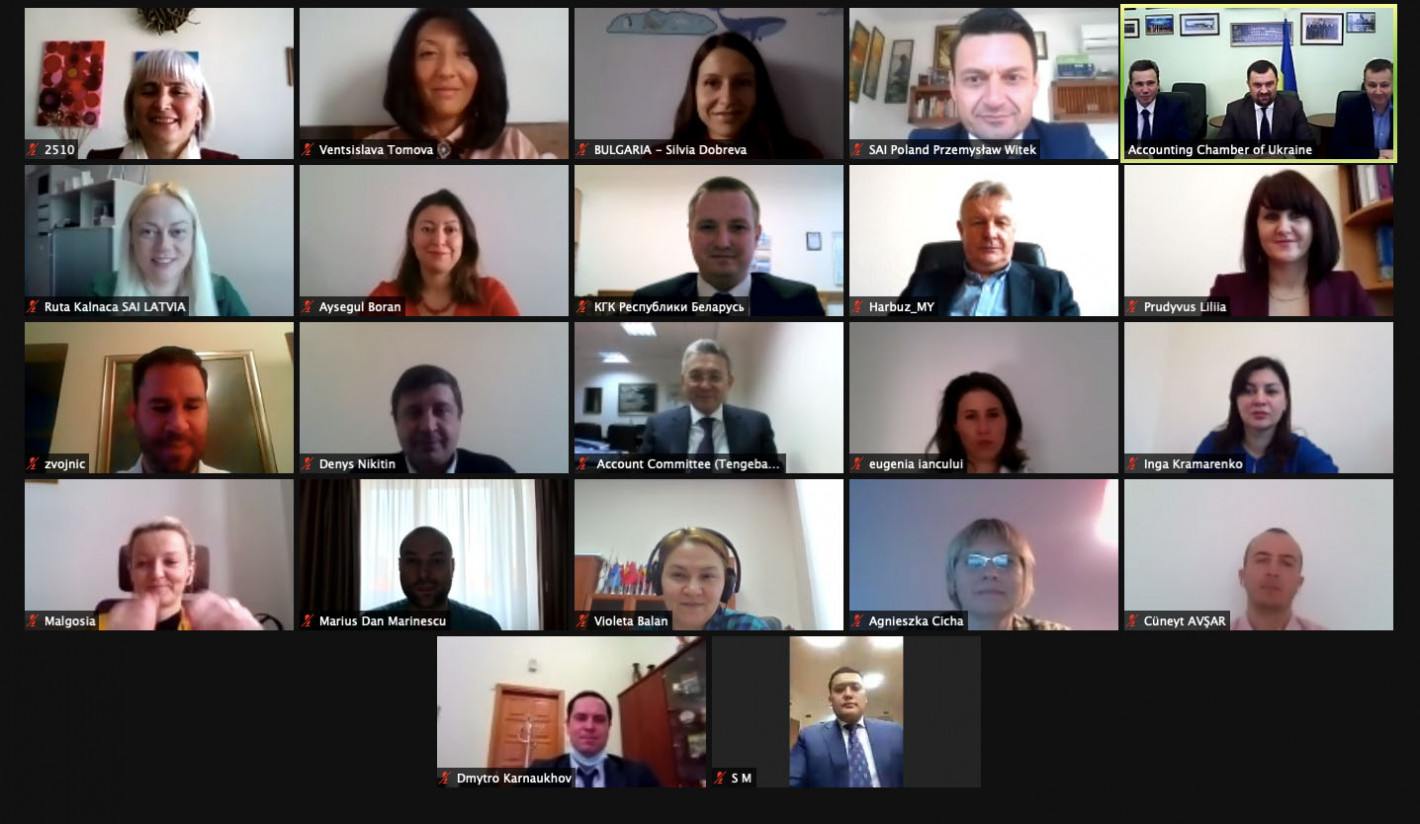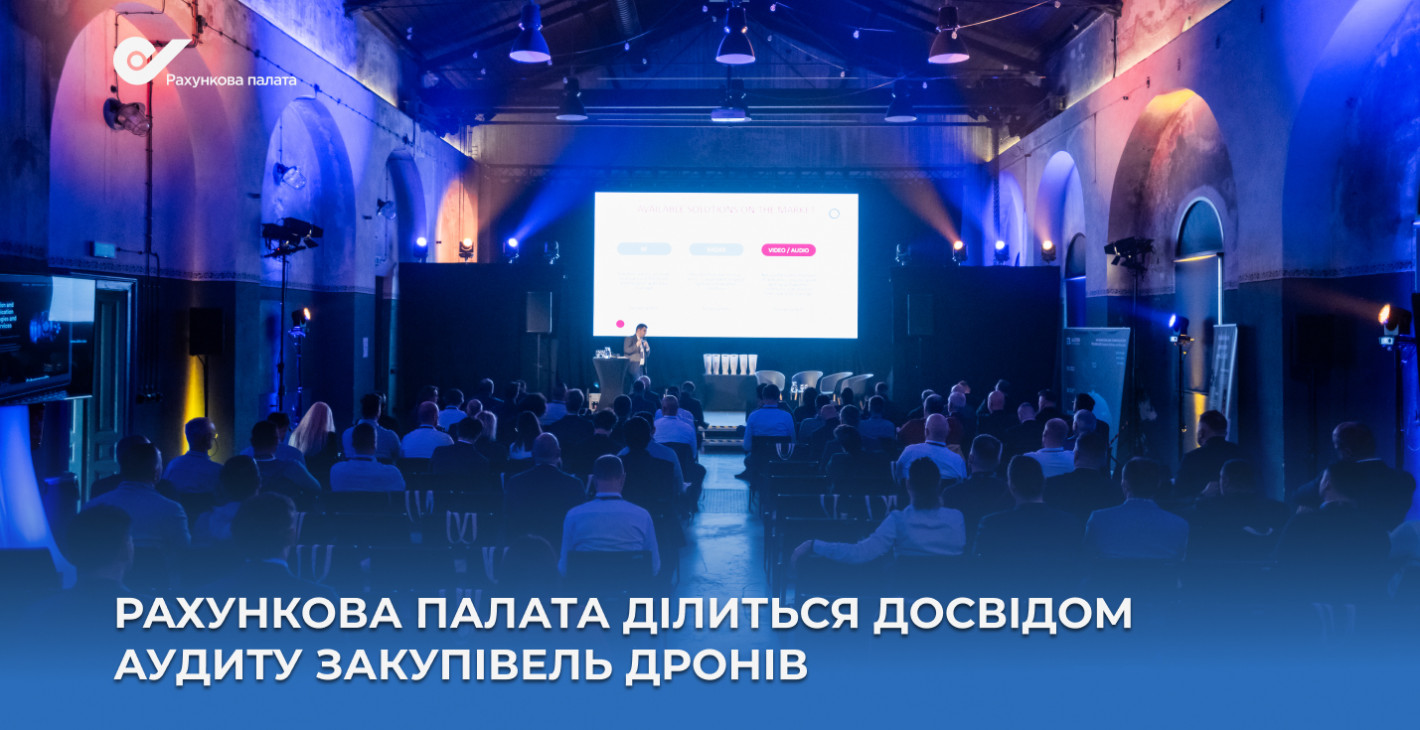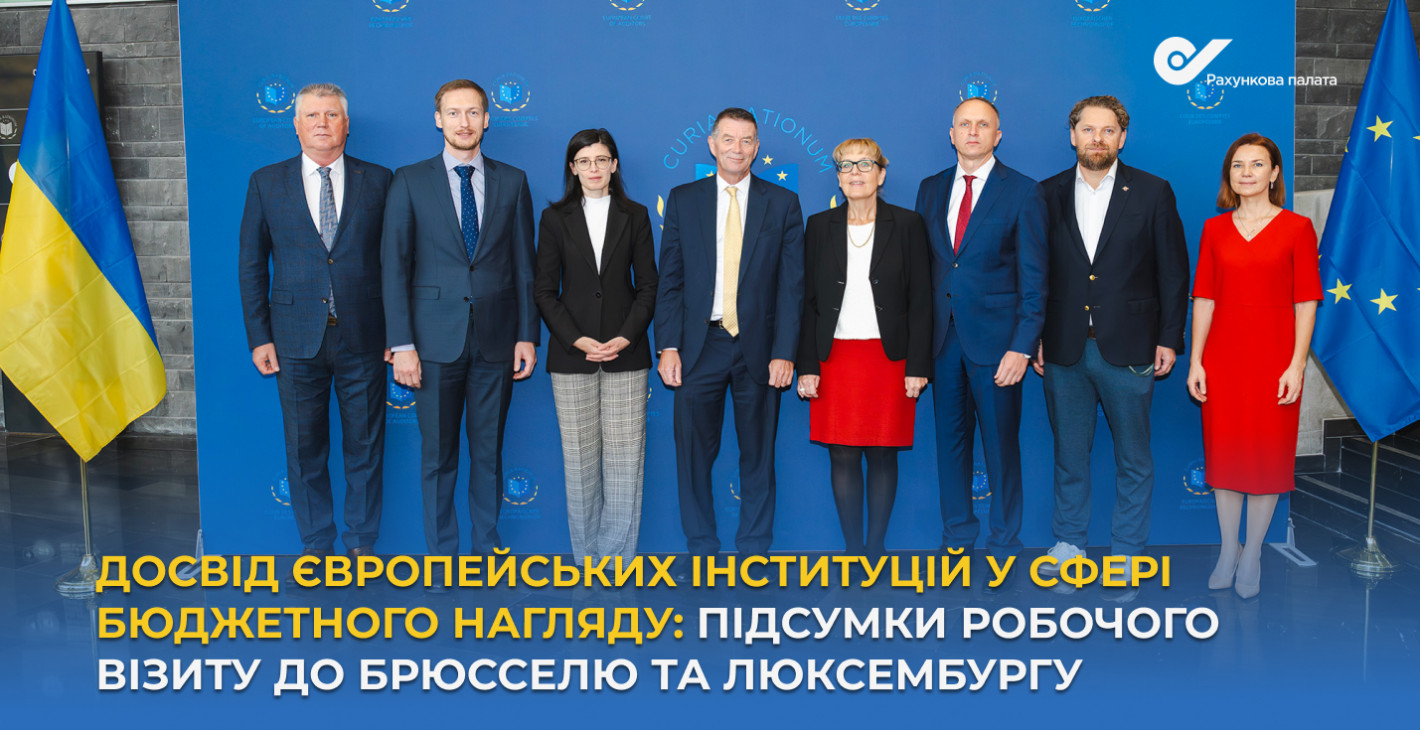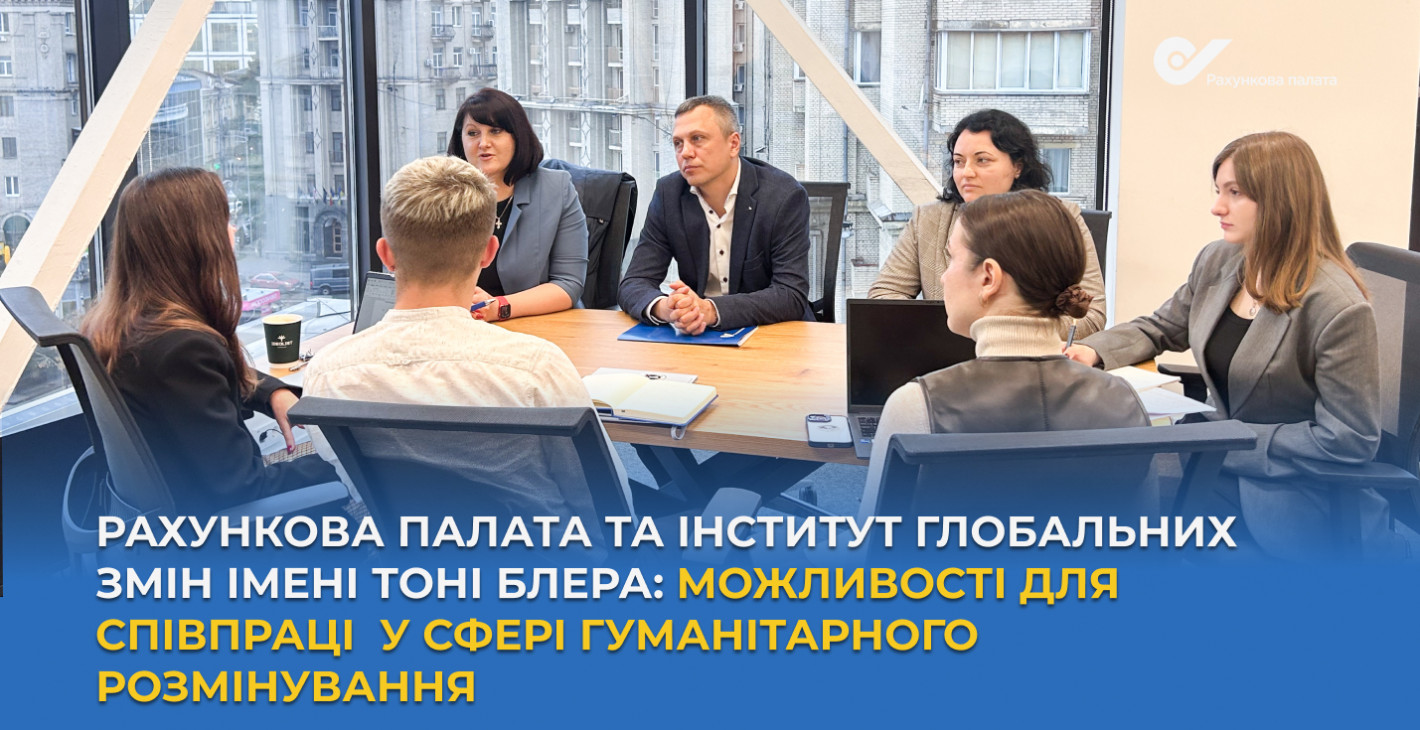The world is increasingly suffering from disasters. The costs of overcoming the consequences of such disasters are growing, as well as the losses caused by catastrophes. Issues of natural and man-made safety, both for each country and for the world, are becoming a priority. The SAIs are also joining their efforts. Carrying out national and international audits on disaster risk reduction and eliminating the consequences of disasters and also developing joint recommendations to governments on establishment of effective and efficient disaster prevention and response tools are becoming a priority in the activities of SAIs and EUROSAI working groups. The mission of the EUROSAI Working Group on the Audit of Funds Allocated to Disasters and Catastrophes is the same.
The above was stated by the member of the Accounting Chamber of Ukraine Viktor Bohun during the VI meeting of the EUROSAI Working Group on the Audit of Funds Allocated to Disasters and Catastrophes. Given the COVID-19 pandemic, the meeting with participation of 14 countries was held online.
The results of completed international audits, the Good Practice Recommendations for Conducting Audits in the Field of Prevention and Consequences Elimination of Floods, as well as the draft Strategic Development Plan of the EUROSAI Working Group for 2021−2024, were presented at the meeting.
“To date, the results of two joint reports have been completed and agreed upon: the International Coordinated Audit on the Prevention and Consequences Elimination of Floods (participants – the SAIs of Ukraine, Poland, Belarus, Serbia, Georgia, Turkey and the European Court of Auditors), the International coordinated audit on Waste Management and Utilization (participants – the SAIs of Ukraine, Moldova and Serbia). In the nearest future, the joint reports on the results of these two audits will be sent for signing by the leaders of the participating SAIs”, the member of the Accounting Chamber Viktor Bohun said.
In addition, the International audit on “Transboundary movement of wastes in the light of the Basel Convention provisions” with the participation of the SAIs of Ukraine, Slovakia and Poland, is at the stage of finalization.
“I hope that the conducted international audits will intensify the activity of governments of participating countries and draw more attention to our countries’ urgent problems. Since the costs of overcoming the consequences of disasters are usually many times higher than the costs of preventing them” − Victor Bohun stressed. He added that the modern world is increasingly dictating new challenges to us, and countries must not only be ready for them but also know how to respond to them in a timely and effective manner.
“Due to this and in order to continue active work in the field of disaster prevention and response, further international coordinated audits in this area, providing training for auditors, exchange of experience and best practices on the audit in the field of disaster prevention and response, implementation of the developed methodology and relevant ISSAIs, the Accounting Chamber of Ukraine, which chairs the Working Group, with the support of its members initiates the extension of the mandate of the EUROSAI Working Group on the Audit of Funds Allocated to Disasters and Catastrophes for the next period of 2021−2024 years”, - Victor Bohun emphasized.
As part of the VI meeting of the EUROSAI Working Group, a seminar on the topic “Prevention of man-made disasters: three steps into the future” was also held.
The following reporters made their presentations to the seminar participants:
− Mykhailo Grodzynskiy – Doctor of Science (Geography), Head of Department of Physical Geography and Geoecology, Professor, Corresponding Member of the National Academy of Sciences of Ukraine (“Three academic steps towards the man-made disaster prevention: identification, assessment, dealing with uncertainties”);
− Edward Ganda H. Simanjuntak – Senior Advisor on Environment and Sustainable Development, the Audit Board of the Republic of Indonesia (“Man-made Disasters and Their Audits - Lesson-learned from previous man-made disaster related audits”);
− Arife Cosckun – Principal Auditor-Audit Manager, Turkish Court of Accounts (“An evaluation of using the ISSAIs 5500 series in the auditing of disasters: Natural &Man-made”).
The meeting and seminar, which were held on 24−25 November, were attended by the representatives of 14 countries (Albania, Belarus, Bulgaria, Georgia, Italy, Kazakhstan, Latvia, Moldova, Poland, Romania, Serbia, Turkey, Ukraine, and the invited guest - Indonesia) and the European Court of Auditors.
Reference:
The EUROSAI Working Group on the Audit of Funds Allocated to Disasters and Catastrophes was established in 2014 in accordance with the resolution of the IX EUROSAI Congress. Since its establishment, the Working Group has been chaired by the Accounting Chamber of Ukraine.
The establishment of the Working Group was preceded by almost a 10-year period of activities. Thus, in September 2005, 11 EUROSAI WGEA members supported the Accounting Chamber’s initiative to establish the permanent EUROSAI WGEA Special Subgroup on the Audit of Natural, Man-caused Disasters Consequences and Radioactive Wastes Elimination. Subsequently, the Accounting Chamber of Ukraine, as the Chair of the Subgroup, initiated the process of transforming it into the EUROSAI Task Force on the Audit of Funds Allocated to Disasters and Catastrophes, and from 2014 – into the EUROSAI Working Group, with the purpose of practical implementation of standards at the regional level, which were developed by the INTOSAI Working Group on Accountability for and the Audit of Disaster related Aid. In 2020, the Working Group consists of 19 SAIs, 17 of which are members and 2 – observers of the Working Group.







